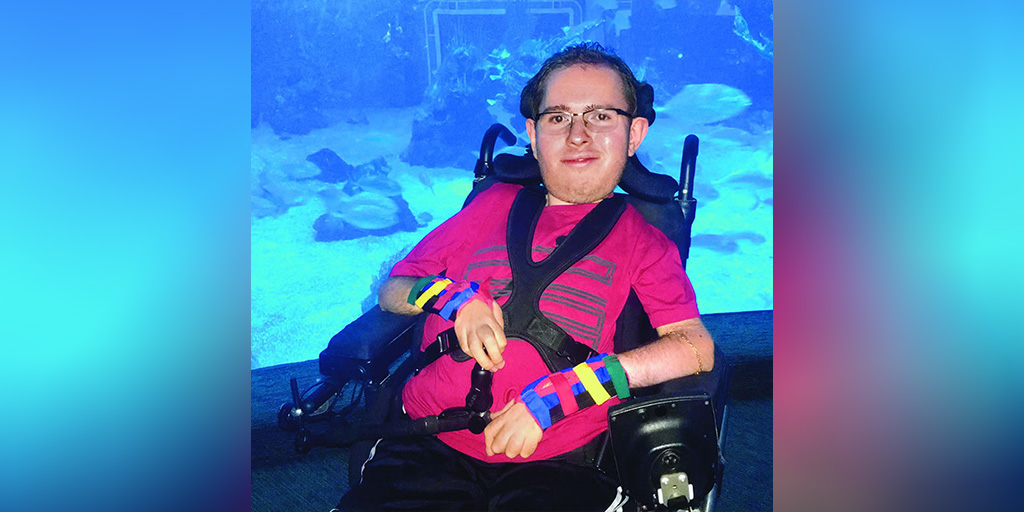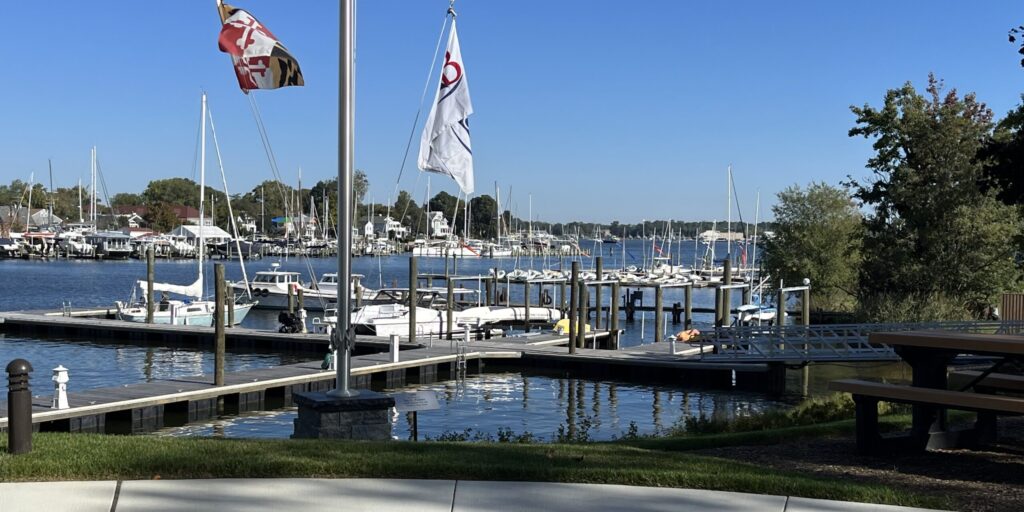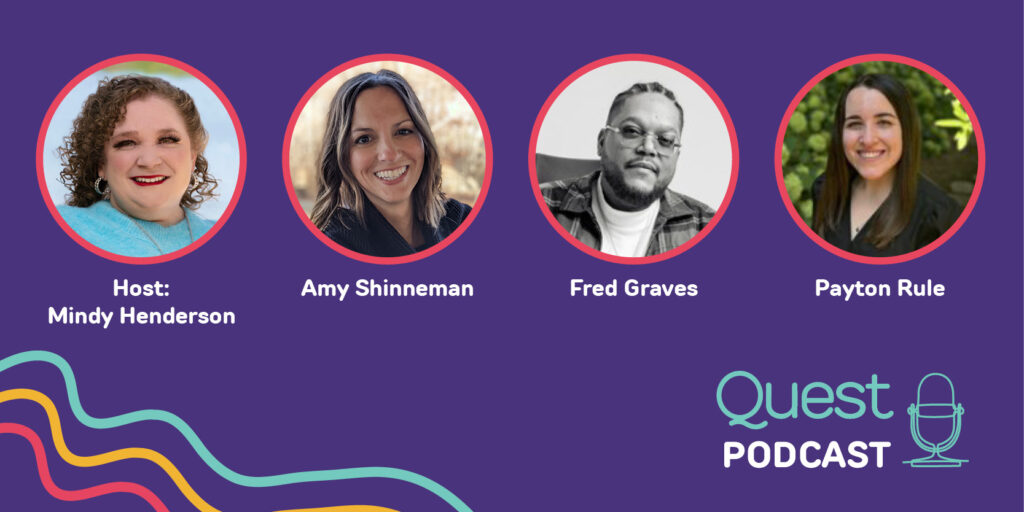
What Happened to You
By John Scurto | Thursday, March 28, 2019
5 Second Summary
Read more personal stories from members of the neuromuscular community about their College Experience as they share their journey, accomplishments, advice for accommodations and overcoming barriers, and insights into navigating college life with a disability.
“What happened to you?” The question became familiar to me as a child while the young, curious faces stared at my power wheelchair.
I wanted so badly for my peers to see me as a “normal” kid, yet there was nothing I could do to mask my differences.
I have spinal muscular atrophy (SMA), a genetic condition caused by a mutation that affects muscle use. Only 1 in 11,000 people are born with this condition.
SMA robbed me of my ability to walk and progressively weakened the muscles in my legs, arms and hands. Additionally, SMA makes my swallowing and breathing more difficult. My condition has forced me to rely on a power wheelchair since the age of 4 and on the assistance of others for my daily physical needs.
Each time a person asked what happened to me, it made me feel as if I was part of a rare, nonhuman species.
Trying to Belong
Throughout my childhood, I spent more than 100 days in the pediatric intensive care unit of my local hospital because of multiple surgeries and repeated battles with pneumonia.
After I became medically stable, I was able to attend elementary school regularly. Because I spent so much time interacting with adults in the hospital and with home health nurses, I struggled to connect with people my age.
Seeing my peers run around and enjoy the slides and monkey bars while I sat and watched from my wheelchair was tough. In my mind, I imagined breaking free from my chair and partaking in the amusements alongside them.
Whenever I glanced in the mirror, I did not see my wheelchair. It is an accessory I use to accomplish the task of mobility. I wanted people to look past my chair and see me simply as one of them.
Once I got to high school, I was looking forward to making lots of new friends. I had a desire to show people that having a physical disability does not mean I suffer from any cognitive deficiencies, a common misconception.
I was excited for a new chapter in my life.
Throughout the four years, I watched as my peers ate and socialized with each other in the cafeteria while I sat alone with my nurse feeding me lunch. I lacked the self-confidence to approach and initiate conversations with others. Every day, I hoped for someone to join me, but no one ever did.
It saddened me that my uniqueness of having a disability overshadowed my similarities to my peers. I felt like I was punished for having a disability.
Despite the social isolation during my high school years, I graduated in the top 10 percent of my class with a near-perfect GPA. This academic success led to membership in multiple honor societies and a full college scholarship.
Finding My Place
I eagerly awaited the new beginning I would have as an undergraduate at Florida Atlantic University (FAU) in Boca Raton. I refused to continue the nonexistent social life.
I had a profound desire to finally make friends and grow as a person.
In my first year of college, I completed two leadership programs that provided me with an opportunity to discover what leadership means to me: helping others achieve their desired goals.
I then received an invitation to join the National Society of Collegiate Scholars. Less than a year later, I had the honor of serving as the organization’s vice president. This acceptance from my peers marked one of the first times I truly felt valued and not judged by my disability.
During my junior year, I accomplished my most fulfilling achievement to date: I became an Elite Owl. Elite Owls are leadership and service ambassadors who passionately promote leadership development by facilitating workshops and mentoring students.
Through this organization, I have presented in front of hundreds of students at leadership conferences. While I have always dreaded public speaking, I ultimately gained the confidence to be a presenter for large audiences.
The welcome I felt from the students in Elite Owls forever changed my life. For the first time, I felt like I had a lot of friends. They exemplified the true meaning of leadership, and I want to make that same impact in other people’s lives.
Shortly after, I was named the valedictorian of the two-year University Honors Program at FAU, graduating with a 4.0 GPA. I took on this ambitious aspiration and all of my other college achievements to demonstrate that an individual can accomplish anything, no matter what.
Becoming a Leader
While there are many tasks I am unable to perform, I have done so much, both despite having a disability and because of my disability. Just because someone is physically or mentally unable to do something does not mean that he or she should be treated differently; we all have characteristics that make us unique.
I made it my life’s purpose to serve as an example for disabled and nondisabled individuals to show that we all face obstacles in life, visible or not, and the way we respond to our situations shows who we are as individuals.
I may have SMA, but it is not who I am. My life is defined by the choices I continue to make to be someone who can inspire others.
I now find myself asking the same question that people used to ask me when I was younger: “What happened to you?”
The answer: I chose to embrace and accept my disability.
Instead of letting situations I cannot control hinder my life, I decided to achieve the high ambitions I dreamed of to demonstrate the power of actualizing a vision.
Through perseverance and tenacity, I have become a role model and leader, lighting the path for others to follow in pursuit of their dreams, so we can better ourselves and the world we live in.
John Scurto, 21, was diagnosed with SMA in 2017. He is currently a senior at Florida Atlantic University in Boca Raton, majoring in business management and minoring in leadership studies.
TAGS: College, College Experience, From Where I Sit, Young Adults
TYPE: Featured Article
Disclaimer: No content on this site should ever be used as a substitute for direct medical advice from your doctor or other qualified clinician.




